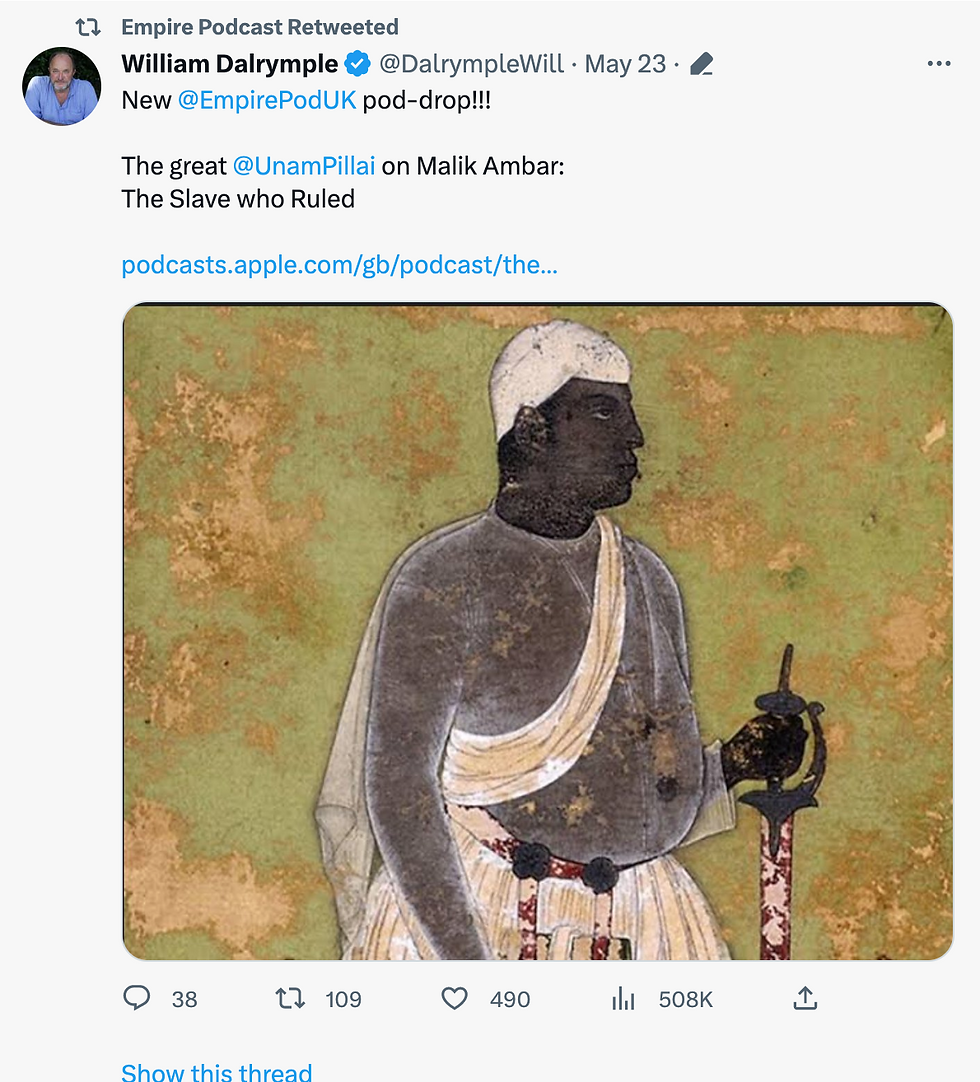Malik Ambar's Rule in India
- Jonah Batambuze

- May 30, 2023
- 2 min read
Updated: Aug 5, 2025

When we speak of African enslavement, India rarely enters the conversation. But it should. Because not every enslaved African became a statistic—some became sultans.
Often when we discuss enslavement, we center the Transatlantic slave trade, which transported over 10 million enslaved Africans to the Americas between the 16th and 19th centuries.
But fewer people know about the Indian Ocean slave trade, which spanned over a thousand years. In this network, enslaved East Africans were taken to the Middle East, Indian Ocean islands, and India—especially regions like Gujarat, the Deccan, and Bengal.
Unlike the plantation system of the Atlantic, enslavement in India often looked different. Some enslaved people became soldiers. Some became palace guards.
And some, like Malik Ambar, reshaped history.
Born in Ethiopia in 1548, Malik Ambar was taken from his homeland at the age of 12.
He was first sold to an owner in Baghdad, where he converted to Islam, and later trafficked to India—arriving on the Deccan plateau as an enslaved teenager.
But India is where he flipped the script.
He rose from enslavement to become a military strategist, urban planner, and eventually the de facto ruler of the Ahmadnagar Sultanate. He was the Mughal Empire’s fiercest opponent and Aurangzeb’s most frustrating rival. Malik Ambar pioneered guerrilla warfare techniques, commanded a multi-ethnic army, and built the city of Khirki—now known as Aurangabad.
His legacy endures in forts, canals, and battle plans—but not always in textbooks.
Malik Ambar’s story challenges narrow ideas of what it means to be African, Indian, enslaved—or powerful.
His life wasn’t an exception. It’s part of a deeper truth:That Black x Brown entanglements didn’t start in the diaspora.They’ve existed for centuries—in resistance, in kinship, in power.
Malik Ambar wasn’t just African. He wasn’t just Indian. He was Afro-Indian. Blindian.
🎧 To dive deeper, listen to the @EmpirePodUK series on the History of SlaveryHosted by @williamdalrymple & @tweeter_anitaLink: linktr.ee/empirepod
📌 Save this post🔁 Share with someone who’s never heard of Malik Ambar✊🏾 Remember him.#BlindianProject #MalikAmbar #AfroIndianHistory
Jonah Batambuze is a Ugandan-American interdisciplinary artist and founder of the BlindianProject, a global platform remixing Black x Brown identity through art, history, and storytelling. His work moves across installation, film, writing, and education—challenging systems of erasure while building new cultural blueprints.
Batambuze speaks and facilitates internationally on topics including Black South Asian solidarity, caste and colonial legacies, diasporic memory, and cultural resistance.
For speaking engagements, workshops, or media inquiries, contact: jonah@blindian-project.com or visit jonahbatambuze.com/speaking




Comments